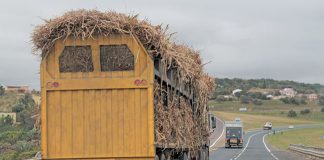
A cigarette manufacturer implicated in illicit trade estimated to cost South Africa an additional R1 billion in excise duties over the past three months, has again denied selling illegal products.
Raees Saint, the attorney representing the Gold Leaf Tobacco Corporation (GLTC), said a tobacco market study report released on Tuesday that had painted GLTC as the “bad guys” was factually inaccurate.
He denied that the company had been involved in selling illegal products, and said he planned to take legal action as a result of the damage caused to the business’s reputation.
The report was based on Ipsos research commissioned by the Tobacco Institute of Southern Africa (TISA).
According to TISA, nearly R18 of the price of a packet of cigarettes was made up of taxes payable to the SA Revenue Service (SARS), which meant that any product sold below this price was considered illicit.
A report released by TISA earlier this year claimed that SARS had been losing an estimated R7 billion per annum in tax revenue, due to illegal cigarettes being sold for as little as R10 a pack in the informal sector. The additional losses thus brought this figure up to R8 billion a year.
The institute said an audit in June this year had found that illicit cigarettes comprised 33% of the informal market.
However, the latest report had revealed that this share had increased to nearly 42% over three months.
TISA said in a statement that GLTC now represented 73% of the market for illegal cigarettes, with its RG brand the fastest growing in the country.
Saint said the various brands of cigarettes sold by GLTC in South Africa retailed for between R21 to R28 and complied with all legal and tax requirements. He said cigarettes sold to clients in other countries, such as Zimbabwe or Lesotho, were not subject to the same taxes.
He confirmed that a pack of cigarettes sold as an export product could cost the buyer in the destination country as little as R3. Once the product had been sold and had arrived at its destination, it was out of GLTC’s hands.
Saint agreed it was conceivable that cigarettes smuggled back over the border could be sold in informal markets in South Africa for as little as R6 a pack. He said GLTC had previously called on authorities to address the problem, which was also affecting its business.
However, TISA chairperson, François van der Merwe, said he did not think this explanation could account for the volume of illicit cigarettes on the South African market.
He said that, according to TISA research, between 30 billion and 33 billion cigarettes were smoked in the country each year, of which about 80% were traded via informal markets.
Van der Merwe said that one million packets of cigarettes were estimated to be sold illegally in South Africa every day.
He added that TISA had commissioned the research as it had observed a decline in legally traded cigarettes despite consumption figures remaining stable. He was confident that the research would support any legal action that followed.











